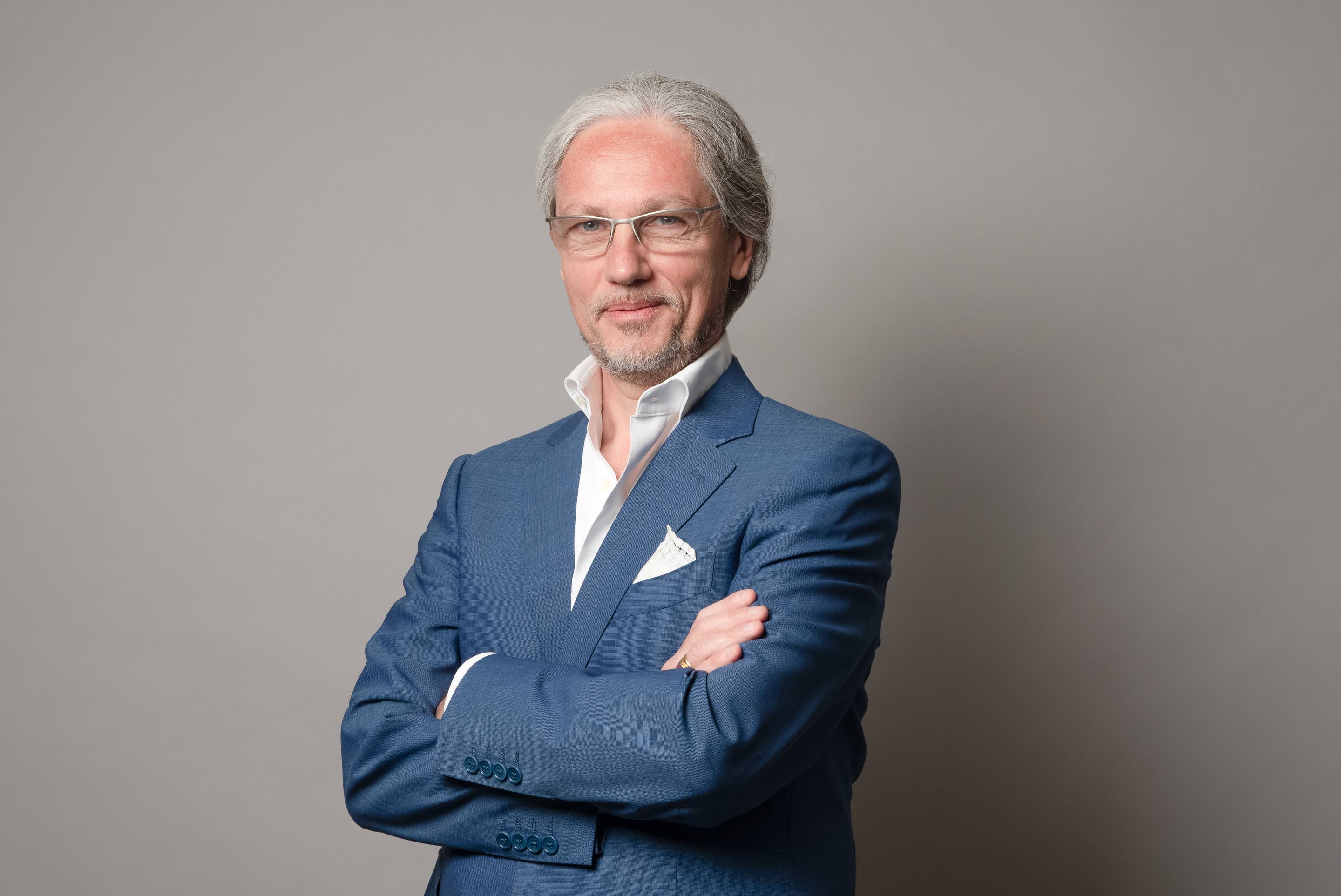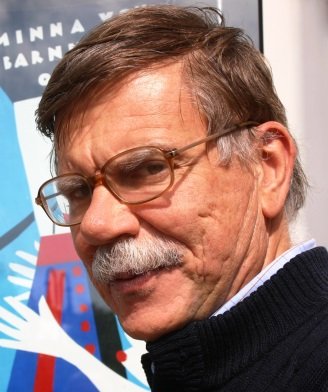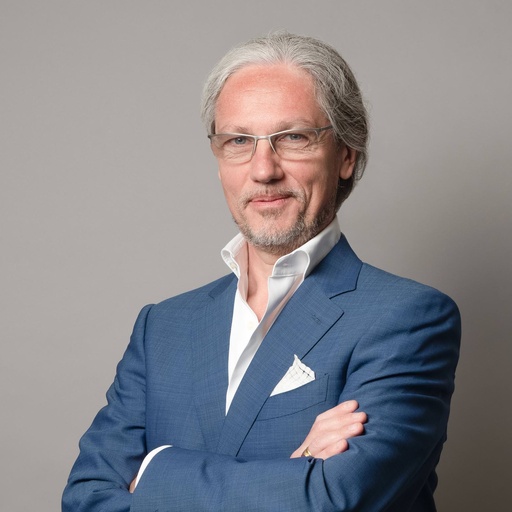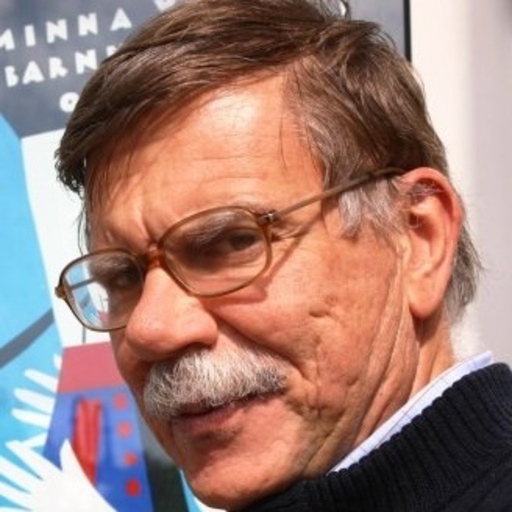
Francesco Bonfiglio joined GAIA-X in March 2021 as the new CEO.
With more than 30 years' experience in the business of consulting and information technology, Francesco brings his knowledge of the cloud and data market needs, and his vision on how Gaia-X should revolutionize it. Independent Advisor since 2020, he has spent his previous professional life as an executive in many Italian and Multinational contexts. Formerly Chief Executive Officer for ENGINEERING D.HUB (Hybrid Cloud and Digital Transformation company within the largest Italian System Integrator Group), Vice President for Technology Services at AVANADE and Managing Director within the ACCENTURE Group, Chief Technology Officer for HEWLETT-PACKARD EMEA, SW Factory Director at UNISYS, Technical Director and Methodology Evangelist at RATIONAL SOFTWARE amongst his positions.
With a background in Electronics Engineering, he started his career in the late 80s as a HW/SW Engineer working on some of the most advanced Military R&D projects, from the Sonar System for the Italian Navy (ANSQQ14IT) prized during the Gulf war for the mine-hunting performances, to the Eurofighter Fighter Aircraft (EFA), still one of the most advanced examples of technology in the Military field.
Francesco had a bottom-up career, covering all roles within the IT, from developer to top-executive, from R&D to business units' leader. An early supporter of the need for continuous innovation, he is a big fan of the startup ecosystem, active member of evaluation commissions, and being board member and co-founder of FOOLFARM.com, the first example of Startup Studio in Italy.
Amongst other roles Francesco has represented the IT world and then became Vice President of Confindustria (Italian Trade Association) for Valle D'Aosta.
Living in Italy, in the countryside out of Milan, married and father of three sons, he loves music and played in several independent live and record productions since the 80s.
Francesco believes in the power of collective intelligence, lateral thinking, and teamwork, as a propeller for transformation, in the business as well as in the whole life!
Gaia-X represents the next generation of data infrastructure ecosystem: an open, transparent, and secure digital ecosystem, where data and services can be made available, collated, and shared in an environment of trust. The architecture of Gaia-X is based on the principle of decentralization.
Gaia-X is the result of many individual data owners (users) and technology players (providers) - all adopting a common set of policy, technical, and labelling rules and specifications - the Gaia-X framework.
Together, we are developing a new concept of data infrastructure ecosystem based on the values of openness, transparency, sovereignty, and interoperability, to enable trust. What emerges is not a new cloud physical infrastructure, but a software federation system that can connect several cloud service providers and data owners together to ensure data exchange in a trusted environment and boost the creation of new common data spaces to create digital economy.
In a digital market that sees a cloud market growing threefold in three years, between 2017 and 2020, EU CSP providers have seen a drop in their share (from 26% to 17%) and the dominance of a handful of dominant players taking the lead. On the other side the enormous opportunity represented by data exploitation is still at a starting point, with 80% of industrial data untapped in on premises systems, limited data sharing, and no common dataspaces within and across sectors. The future of data economy is at stake, and with it the future of our continent and lives. The EU's aspiration for a new era of digital innovation requires a new paradigm of digital trust to enable the creation of common dataspaces at scale, and a new concept of data infrastructures and digital services, transparent, controllable, and interoperable, to bring control back from technology providers to technology users. The scope of the presentation is to give an overview for the core concepts behind the Gaia-X Framework, the benefits of it, and its' business value and respective applicability.
Gaia-X brings together companies, associations, and research institutions to create a trustworthy digital ecosystem. Their international project is designed to simplify collating and sharing data by creating dedicated data spaces to serve critical industries. Most importantly, the users retain sovereignty over their data. With over 1,800 participants, Gaia-X has created a federated system to link cloud users together. For more information, visit www.gaia-x.eu.
“...Data is a new gold, owned by each and every one and democratically distributed all over the globe. This is a unique and unprecedented opportunity for the human being to build a new economy with greater and more equal opportunities for any data provider or consumer in any country. The participation to GAIA-X by hundreds of partner companies, witnesses the common need for a new platform of rules and technologies, that can make concepts like data sovereignty, interoperability and transparency, truly concrete, tangible and measurable. This is the objective of GAIA-X, the success of which will mark an irreversible boost for Digital Economy, not just for Europe. As an IT professional and as a European citizen I'm honored and thrilled by the opportunity to give my contribution to a project that can shape a better future, not for the IT sector per se, but for the entire economy of our countries and for the life of us and our loved ones...”

Stefano Ceri is a professor of Data Management at Politecnico di Milano. His main research interests are extending data management and then acting as data scientists in numerous domains - including social analytics, fake news detection, genomics for biology and for precision medicine, and recently studies concerning the SARS-CoV-2 viral genome. He is the recipient of two ERC AdG, “Search Computing” (2008-2013) and “data-driven Genomic Computing” (2016-2021). He received the ACM-SIGMOD "Edward T. Codd Innovation Award" (June 2013). He is an ACM Fellow.
Prof. Ceri will give a simple and data-inspired illustration of what is a viral sequence, what are mutations, how mutated sequences become organized forming a “variant”, what are the effects of individual mutations and of variants. Then, Prof. Ceri will illustrate the process of deposition of viral sequences to public repositories (GenBank, COG-UK, GISAID). In the second part of the seminar, Prof. Ceri will discuss the systems that were developed within his group, thanks to ERC and EIT funding and to the availability of big data collections. He will briefly introduce the data model and integration system that allowed to collect and store SARS-CoV-2 sequence data. Several systems were built on top of such data collection. Specifically, Prof. Ceri will illustrate: (i)ViruSurf, a search system enabling free metadata-driven search over the integrated and curated databases; (ii) EpiSurf, a tool for intersecting viral sequences with epitopes - used in vaccine design; (iii) VirusViz, a data visualization tool for comparatively analyzing query results; (iv) ViruClust, a tool supporting data aggregation and groups comparison; (v) VariantHunter, a tool for observing interesting variant trends and identifying novel emerging variants. If time allows, Prof. Ceri will also discuss an example of data analysis for revealing variants.

